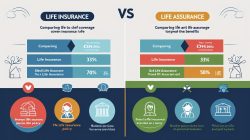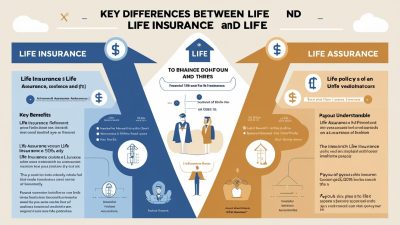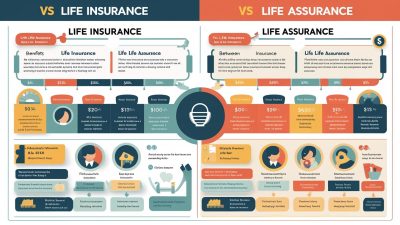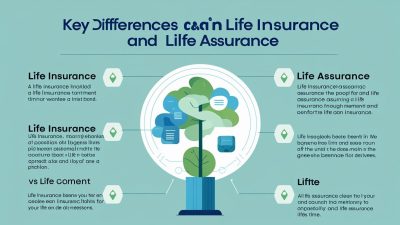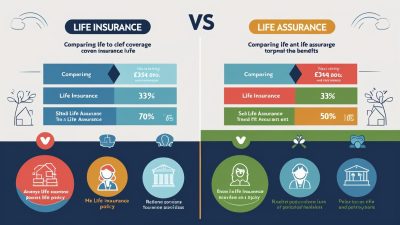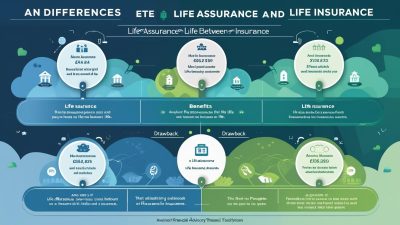Life Insurance for Small Business Australia: A Strategic Guide for 2025
Bloggerbanyumas.com – When it comes to securing the financial future of a small business in Australia, one of the most crucial considerations is protecting the lives of key individuals within the business. Life insurance for small businesses is often overlooked, yet it can be the difference between survival and closure in the event of an unforeseen tragedy. Whether you’re a business owner, a key stakeholder, or an employee who plays a vital role in the business operations, life insurance is a smart, proactive way to safeguard your business against the loss of key personnel. As we move into 2025, small business owners in Australia are increasingly recognizing the need for tailored life insurance solutions.
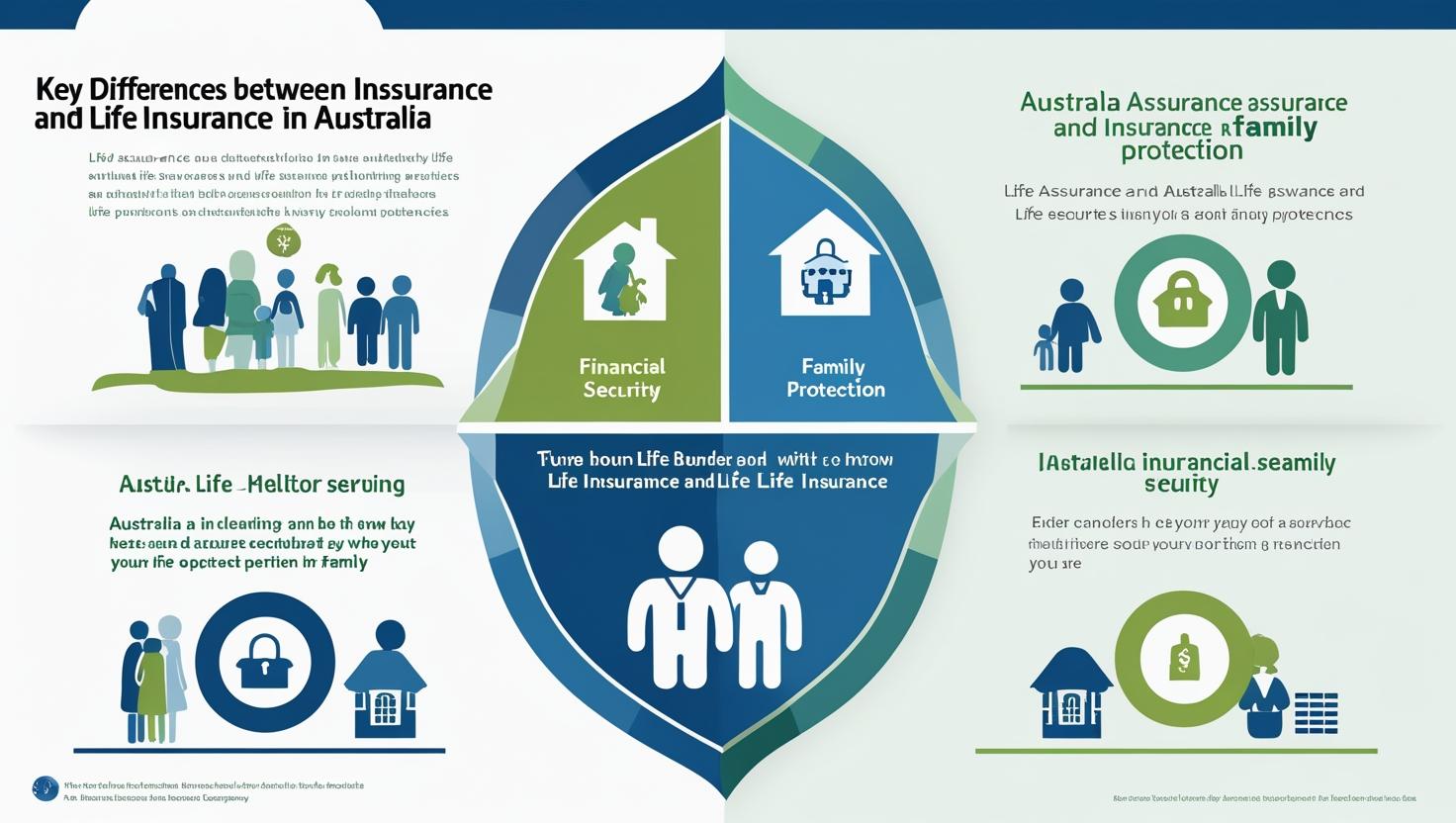
In Australia, life insurance for small businesses can take many forms, from business protection insurance to policies specifically designed for key individuals or partners. These policies ensure that your business can continue operating, even in the face of unexpected disruptions. This guide will delve into the different types of life insurance for small businesses in Australia, how these policies work, and why securing the right coverage is essential for your business’s future.
Why Life Insurance for Small Business is Essential
Running a small business is inherently risky, and life insurance provides a financial safety net in case a business owner or key employee faces a fatal or permanent disability. Without a clear plan for dealing with such risks, the business may struggle to survive. Life insurance not only offers peace of mind but also enables businesses to handle sudden changes in personnel without suffering financial strain.
In Australia, small businesses are the backbone of the economy, and many of these businesses rely heavily on the skills, knowledge, and leadership of a few key individuals. Without life insurance, the financial burden of replacing or compensating for the loss of these individuals could jeopardize the future of the entire business.
A well-structured life insurance policy can provide immediate funds to help cover costs, such as:
- Business continuity: Ensuring that day-to-day operations continue smoothly in the absence of a key person.
- Debts and liabilities: Paying off business debts and loans to prevent financial collapse.
- Buy-sell agreements: Ensuring the business can continue running smoothly if a partner passes away unexpectedly.
- Employee benefits: Safeguarding employees’ jobs and providing them with compensation or severance pay during transitions.
By integrating life insurance into the broader business risk management plan, small business owners can ensure that they are prepared for the unexpected.
Types of Life Insurance for Small Businesses in Australia
There are various life insurance products available to Australian small businesses, each designed to address different needs and circumstances. These types of insurance provide a financial safety net, whether you’re a sole trader, a partner in a business, or a key employee. Below are the key types of life insurance that small business owners in Australia should consider:
1. Key Person Insurance
Key person insurance is designed to protect small businesses from the financial consequences of losing a key person due to death or disability. The “key person” could be the business owner, a director, or any employee whose skills and contributions are integral to the company’s operations and profitability.
This insurance policy helps the business cover the following:
- Cost of hiring a replacement: Recruiting and training a new person to fill the role of a key individual can be costly and time-consuming. Key person insurance can cover these costs.
- Loss of income: If the loss of the key person leads to a decline in revenue, key person insurance provides compensation to maintain cash flow during the transition period.
- Business loans and debts: If your business has any outstanding loans or debts, key person insurance can help pay these off, ensuring the financial stability of the business.
For small businesses, key person insurance is particularly important if the company relies on a few individuals whose departure would significantly affect the organization’s operations.
2. Buy-Sell Insurance
Buy-sell insurance is designed for business partners or co-owners who want to plan for the eventuality of a partner’s death or permanent disability. This policy ensures that the remaining partner(s) can purchase the deceased or disabled partner’s share of the business, rather than dealing with the complications of an estate sale.
This type of insurance can help with:
- Business continuity: It ensures that the business remains operational even if one of the partners cannot continue.
- Valuation of shares: Buy-sell insurance helps determine the value of a business partner’s shares, which is crucial when establishing fair compensation terms.
- Prevention of external ownership: Without buy-sell insurance, a business partner’s family could potentially sell the business shares to an outside party, which could disrupt the operations of the business.
In short, buy-sell insurance ensures that the remaining partners have the financial ability to buy out the deceased or disabled partner’s shares without straining the business.
3. Trauma or Critical Illness Insurance
Trauma insurance, also known as critical illness insurance, provides a lump sum payment if a business owner or key employee suffers from a severe illness or injury that may result in a temporary or permanent inability to work. Common illnesses covered by trauma insurance include cancer, heart attack, stroke, and major surgeries.
This type of insurance provides funds to help with:
- Medical costs: Covering medical expenses and treatments related to the illness.
- Income replacement: Replacing lost income during the recovery period.
- Ongoing care: Covering the cost of rehabilitation and care services.
Trauma insurance is particularly useful for business owners who want to ensure that they and their key employees are financially supported during an illness or injury, reducing the risk of financial hardship.
4. Life Insurance for Partners or Shareholders
For businesses with multiple owners, life insurance can also serve as a tool for creating a buyout agreement in case a partner or shareholder passes away. The policy can provide the necessary funds to buy out the deceased individual’s share of the business, ensuring a smooth transition without the need for third-party involvement.
This insurance also ensures that surviving partners or shareholders are not left with the responsibility of running the business without adequate support. It can be particularly beneficial for small businesses with a family-owned structure or in situations where the business partners rely heavily on each other’s expertise and contributions.
5. Group Life Insurance
Group life insurance is typically offered as an employee benefit by businesses, particularly larger small businesses. It provides coverage for multiple employees under one policy, often at a lower cost than individual life insurance policies. This policy can be offered as a form of employee retention or to provide additional benefits to your workforce.
Group life insurance can be an important tool for small businesses looking to attract and retain top talent. By offering this type of coverage, businesses show that they care about the well-being of their employees, which can increase morale and reduce turnover.
Benefits of Life Insurance for Small Businesses in Australia
Investing in life insurance for small businesses can bring several long-term benefits. Here are some of the key advantages:
1. Financial Protection Against Uncertainty
Life insurance provides peace of mind by offering financial protection against the death or disability of key personnel. In the event of a sudden tragedy, life insurance ensures that the business will have access to immediate funds, which can help with the costs of replacing the individual, settling debts, and continuing operations.
2. Support for Business Continuity
In cases where a business owner or key employee is no longer able to contribute, life insurance can provide a financial bridge to keep the business running. Whether it’s hiring temporary replacements, covering salary costs, or ensuring key contracts are met, life insurance ensures that business operations continue without major disruption.
3. Enhanced Succession Planning
For business owners, life insurance is an essential tool for succession planning. Whether you have a family business or a partnership, life insurance can ensure that the transition of ownership or management happens smoothly without causing unnecessary stress or financial strain.
4. Cost-Effective Financial Solution
Life insurance for small businesses is often more affordable than people think. Policies can be tailored to meet the unique needs of small businesses, and premiums can often be lower when coverage is purchased through group plans or bundled with other types of insurance.
5. Employee Well-Being and Retention
Providing life insurance as an employee benefit can significantly improve employee satisfaction and retention. Employees are more likely to remain with a company that offers attractive benefits, and life insurance demonstrates that the business cares about the long-term well-being of its workforce.
Choosing the Right Life Insurance Provider in Australia
Choosing the right provider for your life insurance policy is crucial. Here are some key factors to consider when selecting a life insurance company:
1. Reputation and Financial Stability
Look for an insurer with a solid reputation and financial stability. You want to ensure that your provider can meet their obligations and pay claims when needed.
2. Policy Flexibility
Choose a provider that offers flexibility in terms of coverage amounts, policy terms, and optional add-ons. Life insurance needs can change over time, and it’s essential to have a policy that can adapt to your evolving business requirements.
3. Customer Service and Claims Process
Evaluate the provider’s customer service and claims process. A provider with a reputation for fast, hassle-free claims processing will ensure that your business has the financial resources it needs in a timely manner.
4. Competitive Premiums
While premium costs are important, it’s also essential to consider the value provided by the policy. Choose a provider that offers competitive premiums without compromising on the quality of coverage.
5. Customization and Add-ons
Consider whether the insurer offers the ability to add riders or additional coverage, such as critical illness or trauma insurance, to create a more comprehensive solution for your business.
Conclusion
Life insurance for small businesses in Australia is more than just a safety net—it is a strategic investment that ensures the long-term viability and success of your business. Whether you’re a sole proprietor, a partner, or the owner of a family-run business, life insurance can provide essential protection for your company’s key individuals, employees, and partners. With the right policies in place, small business owners can rest assured knowing that they have a financial safeguard against unforeseen events, allowing their businesses to continue growing and thriving in 2025 and beyond.
FAQs
- What types of life insurance are best for small businesses in Australia?
- Key person insurance, buy-sell insurance, and trauma or critical illness insurance are the most common types that small businesses use.
- How does key person insurance work for small businesses?
- Key person insurance helps businesses cover the financial loss incurred if a key individual passes away or becomes disabled, helping cover recruitment, training, and operational disruption.
- Can small businesses get group life insurance?
- Yes, small businesses can offer group life insurance to employees, which provides coverage at a lower cost than individual policies.
- What are the benefits of buy-sell insurance for business partners?
- Buy-sell insurance ensures that remaining partners have the financial means to buy out a deceased or disabled partner’s share, preventing external ownership issues.
- Is life insurance expensive for small businesses in Australia?
- Life insurance premiums for small businesses can be affordable, especially when policies are tailored to business needs or bundled with other coverages.
- How do I choose the right life insurance provider for my business?
- Consider factors such as reputation, policy flexibility, customer service, competitive premiums, and the ability to customize coverage.




